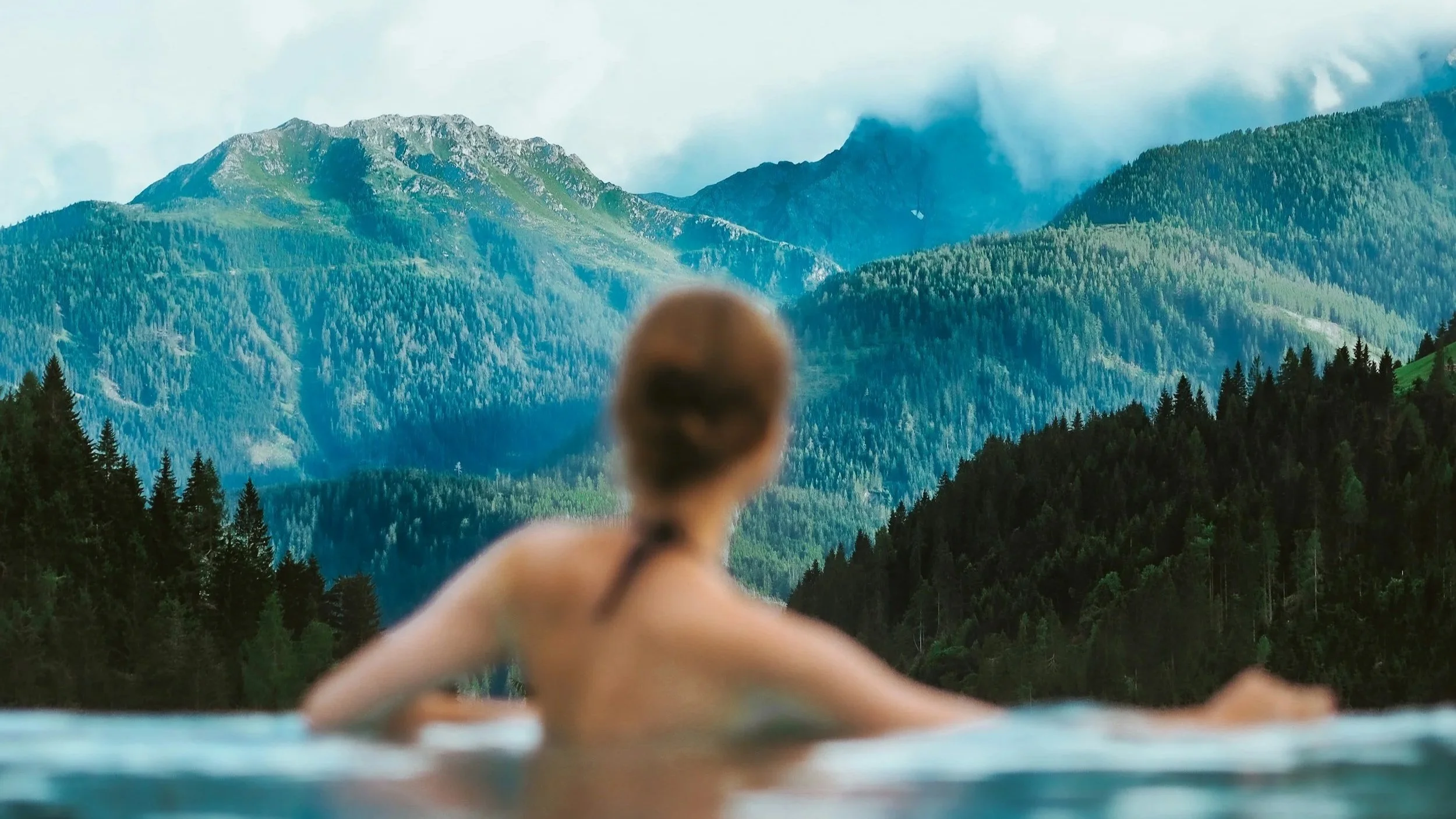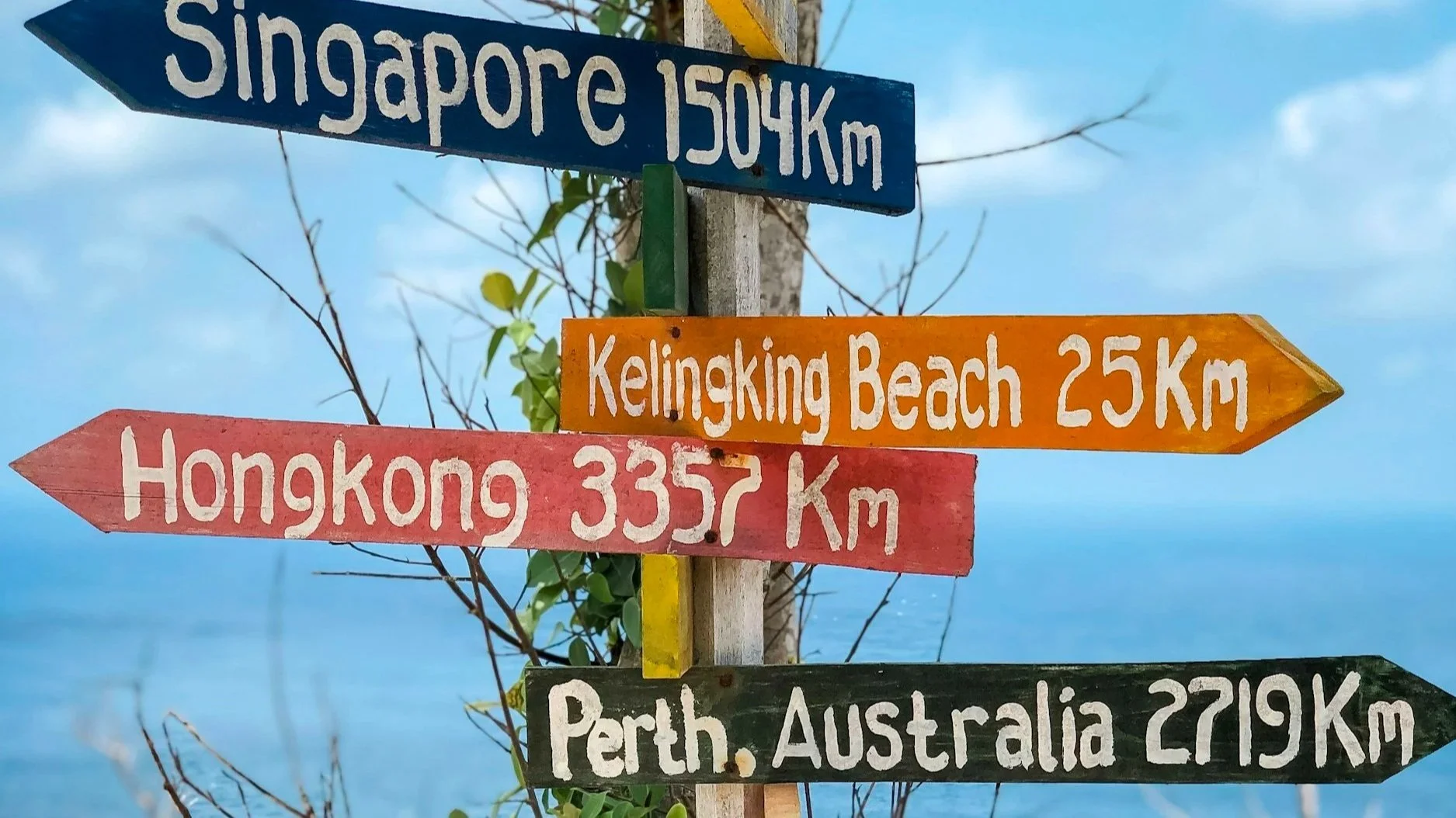Wellness Tourism: A New Era of Transformative Travel
Wellness tourism has emerged as one of the fastest-growing segments in the global travel industry. As travelers increasingly prioritise physical, emotional, mental, and spiritual well-being, the industry is undergoing a profound transformation—shifting from luxury pampering to evidence-based, personalised health journeys.
🔍 What Is Wellness Tourism?
Wellness tourism has deep historical roots, stretching back thousands of years to ancient civilizations that placed a high value on healing, balance, and holistic living. The Greeks pioneered early wellness travel with the thermal baths at Epidaurus, designed to promote physical and spiritual health. Similarly, the Romans developed luxurious bathhouse resorts, offering restorative treatments that blended relaxation with social and cultural enrichment.
Fast forward to the late 19th century, and Europe saw the rise of health retreats focused on fresh air, wholesome food, and outdoor activities like hiking—principles that still underpin many modern wellness escapes.
As the 20th century unfolded, the definition of health expanded to include mental and emotional well-being. This shift gave rise to resort-style wellness centers that emphasized stress relief, mindfulness, and relaxation alongside traditional physical therapies. In recent years, advances in medical science and technology have further transformed wellness tourism, integrating preventive care and holistic health practices into travel experiences.
Today’s wellness tourism landscape is incredibly diverse. Travelers can choose from serene hot spring getaways and aromatherapy massages to immersive adventures centered on personal growth and introspection. Whether seeking fitness, healing, or inner peace, guests now enjoy tailored experiences that reflect the global surge in demand for wellness-focused travel.
🌟 Key Trends Shaping Wellness Tourism
1. Evidence-Based Personalized Wellness
Travelers are seeking programs that combine traditional healing practices with modern, science-backed treatments. These offerings are tailored to individual health profiles and supported by clinical evidence, ensuring measurable outcomes. Resorts like The Farm at San Benito in the Philippines exemplify this trend, offering holistic programs for chronic conditions, mental health, and lifestyle diseases 1.
2. Longevity Retreats
Longevity is no longer just a medical goal—it’s a lifestyle. Retreats now offer advanced diagnostics, biohacking tools, and integrative therapies aimed at extending life expectancy and enhancing vitality. These programs often include brain health training, cognitive activities, and creative workshops 2.
3. Women’s Health-Focused Travel
Women’s wellness is becoming a cornerstone of wellness tourism, with retreats offering hormone-balancing therapies, menopause support, fertility treatments, and emotional well-being programs tailored to different life stages 2.
4. Regenerative Wellness
Sustainability is evolving into regenerative tourism, where travel not only minimizes harm but actively contributes to the health of local ecosystems and communities. This includes eco-conscious resorts, farm-to-table nutrition, and nature immersion experiences 3.
5. Tech-Enhanced Wellness
From AI-driven health assessments to virtual reality meditation, technology is revolutionizing the wellness experience. Guests can now access personalized wellness plans, track progress in real time, and engage in immersive healing environments.
✨ Types of Wellness Tourism
Wellness tourism comes in many forms, each designed to support different aspects of well-being—whether physical, emotional, mental, or spiritual. From serene spa escapes to immersive yoga journeys, there’s a wellness experience to suit every traveler’s needs and preferences.
🧖♀️ Spa Retreats
Spa retreats are among the most popular wellness getaways, offering a full spectrum of treatments aimed at relaxation and rejuvenation. Guests can indulge in massages, aromatherapy, hydrotherapy, mud baths, and thermal springs—all set in tranquil, often scenic environments. These retreats are ideal for those looking to unwind, de-stress, and restore balance to both body and mind.
🧘 Yoga Retreats
Yoga retreats go beyond physical postures—they offer a holistic experience that nurtures the body, mind, and spirit. These programs typically include daily yoga sessions, meditation, breathwork, and nutritional guidance. Whether in the Himalayan foothills or the beaches of Costa Rica, yoga retreats provide a space for self-discovery, healing, and spiritual growth.
🧠 Meditation Retreats
For those seeking inner peace and mental clarity, meditation retreats offer a quiet sanctuary away from the noise of everyday life. Set in serene natural settings, these retreats focus on mindfulness, self-awareness, and emotional balance. Participants often engage in guided meditations, silent reflection, and practices that cultivate calm and presence.
🥗 Healthy Eating Retreats
Healthy eating retreats combine culinary delight with nutritional education. These experiences may include plant-based cooking classes, detox programs, or Ayurvedic meal planning. Whether you're learning to prepare vibrant vegan dishes in Bali or exploring ancient dietary wisdom in India, these retreats help deepen your understanding of the connection between food and well-being.
🌍 Emerging Wellness Destinations
New hotspots are gaining traction for their unique offerings and natural healing environments:
Japan & South Korea – Known for thermal springs and traditional medicine.
Saudi Arabia – Investing heavily in wellness infrastructure as part of its Vision 2030.
Iceland & Italy – Offering nature-based wellness and culinary health experiences.
🌍 Popular destinations for wellness tourism
Certain destinations stand out in the world of wellness tourism for their unique blend of natural beauty and thoughtfully curated experiences. These places offer more than just relaxation—they provide transformative environments tailored to the physical, emotional, and spiritual needs of wellness travelers. Let’s explore five exceptional locations that have become icons in the global wellness landscape.
Iceland: Geothermal Healing in a Land of Fire and Ice
Iceland’s dramatic terrain—marked by volcanic mountains, glacial rivers, and ethereal skies—offers more than just visual splendour. This Nordic island nation has become synonymous with wellness, thanks to its abundance of geothermal hot springs. The world-famous Blue Lagoon, enriched with silica and minerals, is celebrated for its therapeutic properties, particularly for skin health and muscular relaxation.
Beyond the waters, Iceland’s serene environment provides an ideal setting for yoga, meditation, and nature-based therapies. The country’s emphasis on clean air, natural light, and sustainable living makes it a haven for those seeking both physical renewal and mental clarity.
Thailand: Ancient Wisdom and Holistic Harmony
Thailand has long been revered as a sanctuary for wellness travellers, offering a harmonious blend of traditional healing practices and modern retreat experiences. Thai massage, with its unique combination of acupressure, stretching, and energy work, is a cornerstone of the country’s wellness offerings and has gained international acclaim for its restorative effects.
In addition to massage, Thailand is home to a wide array of wellness retreats that focus on detoxification, mindfulness, and spiritual healing. From jungle hideaways in Chiang Mai to beachfront sanctuaries in Koh Samui, these retreats often incorporate meditation, yoga, and plant-based nutrition—reflecting Thailand’s cultural philosophy of balance and inner peace.
India: The Spiritual Heart of Wellness
India’s profound connection to ancient healing systems and spiritual traditions makes it one of the most influential wellness destinations in the world. As the birthplace of yoga and Ayurveda, India offers deeply immersive experiences that go far beyond physical exercise. Retreats in places like Rishikesh, nestled along the Ganges River, and Kerala, known for its lush greenery and Ayurvedic heritage, provide transformative journeys into self-awareness and holistic health.
Visitors can engage in guided meditation, pranayama (breathwork), Ayurvedic treatments, and sattvic (pure) vegetarian cuisine—all designed to restore harmony between body, mind, and spirit. India’s wellness philosophy is rooted in centuries-old wisdom, offering travellers a chance to reconnect with themselves on a profound level.
Costa Rica: Eco-Wellness and Longevity in Paradise
Costa Rica is a shining example of how wellness and sustainability can coexist in perfect harmony. With its rich biodiversity, pristine beaches, and vibrant rainforests, the country offers a natural playground for wellness seekers. Retreats here often integrate yoga, meditation, and organic nutrition with eco-conscious living, allowing guests to reconnect with nature while nurturing their health.
The Nicoya Peninsula, one of the world’s five recognised Blue Zones, is particularly noteworthy for its high concentration of centenarians and lifestyle practices that promote longevity. Costa Rica’s wellness culture emphasises simplicity, community, and a deep respect for the environment—making it an ideal destination for those seeking both vitality and serenity.
🌿 Benefits of Wellness Tourism
While the hospitality industry plays a vital role in global travel, the wellness tourism sector offers a unique set of advantages that go beyond traditional leisure. It continues to attract a growing number of travellers who are drawn to its holistic approach to enhancing physical health, mental wellbeing, and spiritual fulfilment.
💪 Physical Revitalisation
One of the most immediate benefits of wellness tourism is the opportunity for physical renewal. Engaging in activities such as yoga, hiking, swimming, and therapeutic massage helps to improve fitness levels, boost circulation, and support overall bodily health. These experiences encourage guests to adopt healthier habits and embrace a more active lifestyle, often in naturally restorative environments.
🧠 Mental Restoration
Wellness travel also plays a significant role in supporting mental health. The pressures of modern life can lead to stress, anxiety, and burnout. Wellness retreats offer a peaceful escape, providing structured programmes that include mindfulness, meditation, and relaxation therapies. According to research by the Medical Wellness Association, such experiences can significantly reduce stress and enhance emotional resilience.
🌍 Cultural Exchange
Another enriching aspect of wellness tourism is the opportunity for cultural immersion. Travellers often engage with local traditions, healing practices, and philosophies that are deeply rooted in the destination’s heritage. Whether it’s learning Ayurvedic principles in India or participating in traditional Thai massage techniques, these exchanges foster a deeper appreciation of global wellness cultures.
🤝 Enhanced Social Connections
Many wellness retreats are designed to foster community and connection. Through group yoga classes, shared meals, and interactive workshops, participants often form meaningful relationships and enjoy a sense of belonging. These social interactions can improve emotional wellbeing and create lasting friendships, adding a communal dimension to the wellness experience.
🌱 Support for Sustainable Practices
Eco-conscious wellness centres often integrate sustainability into their operations, promoting environmental stewardship alongside personal health. By choosing to stay at eco-friendly resorts, travellers contribute to reducing their carbon footprint and supporting local conservation efforts. This alignment of personal wellness with planetary wellbeing makes wellness tourism a responsible and forward-thinking choice.
🌟 Long-Term Impact
Perhaps one of the most valuable outcomes of wellness tourism is its lasting influence. Many individuals return home with new insights, healthier routines, and a renewed sense of purpose. Whether it’s adopting a meditation practice, embracing nutritious eating, or prioritising self-care, the lessons learned during a wellness holiday often continue to benefit travellers long after their journey ends.
⚠️ Challenges of Wellness Tourism
While wellness tourism has seen remarkable growth and has reshaped the travel industry, its rapid expansion brings with it a number of complex challenges that stakeholders must navigate carefully.
Maintaining Consistent Quality Standards
One of the foremost challenges in the wellness tourism sector is ensuring consistent and credible quality across providers. With a surge of new entrants into the market, it can be difficult for travellers to distinguish between reputable establishments and those lacking professional standards. The absence of universal regulations or accreditation systems means that wellness offerings can vary significantly in terms of safety, efficacy, and professionalism.
Environmental Sustainability
As wellness tourism often relies on pristine natural environments to deliver its experiences, there is growing concern about its ecological impact. Some retreats, particularly those located in sensitive ecosystems, may inadvertently contribute to environmental degradation through overdevelopment, resource consumption, or waste generation. Balancing the delivery of restorative experiences with the preservation of local landscapes and biodiversity remains a pressing issue.
Definitional Ambiguity
The term “wellness tourism” itself can be ambiguous, encompassing a wide range of activities—from yoga and spa retreats to medical tourism and spiritual pilgrimages. This lack of clarity can lead to confusion among consumers and complicate efforts to market and regulate the industry effectively. Differentiating between wellness tourism and adjacent sectors such as health tourism or medical travel is essential for transparency and trust.
Measuring Wellness Outcomes
Another significant challenge lies in the measurement of wellness outcomes. Unlike traditional tourism, which may be evaluated through satisfaction surveys or economic impact, wellness tourism requires more nuanced indicators that reflect genuine improvements in health and wellbeing. Without standardised benchmarks or longitudinal data, it becomes difficult for providers to demonstrate the effectiveness of their programmes or for travellers to make informed choices.
Ethical and Cultural Sensitivity
As wellness tourism often draws upon indigenous practices and cultural traditions, there is a risk of commodifying or misrepresenting these elements. Ensuring respectful engagement with local communities and safeguarding cultural integrity is vital. Providers must be mindful of ethical considerations and avoid appropriating wellness practices without proper context or collaboration.
🧘 The Future Outlook
As wellness becomes a lifestyle rather than a luxury, the tourism industry is adapting to meet the demand for transformative, sustainable, and inclusive experiences. Whether it's a solo retreat for mental clarity or a family wellness vacation, 2025 marks a pivotal moment where travel becomes a catalyst for long-term health and happiness.





